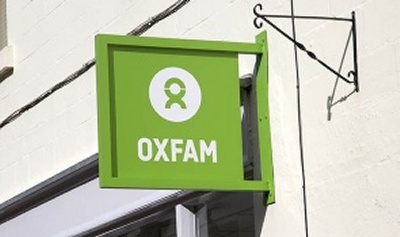Neither Oxfam or the USA appear keen to see Rwanda start up a garment business. Here’s why…
What do you think happens to the used clothes we give to clothes banks?
Some go to charities for the poor, some to emergency aid, but most go to maintain a multi-million dollar international business, with companies exporting mostly American and European second-hand clothes to Africa at market rates, creating big turnovers and profits for all the various middlemen.
And yes, we are talking about those Metallica T-shirts, the stressed jeans, limp jackets, and shorts with faulty string-ties. These are the clothes that are worn by three quarters of all Africans every day, donated by the developed world’s consumers to volume traders who use them to supply markets all over Africa cheaply but for a very lucrative profit.
The value chain starts with charities and church organisations but ends in extreme poverty. It isn’t what most people would expect when they drop their cast-offs into the bins behind Safeways. But stroll through any open market anywhere in Africa (apart from those for the tourists) and you will see acres of rickety stalls selling old clothes to poor people.

Oxfam is a big link in this chain. It routinely sells donated clothes to traders in Africa, and believes it is helping the continent. But a growing African preference for making and selling their own clothes and employing their own people (and thus making themselves less poor) has created a hand-me-down problem between the USA and Rwanda, prompting a nasty little trade war between them at least as fierce as that between the USA and China.
It started in March 2016 when several African countries introduced higher tariffs on the imports of used clothing and footwear on the straightforward basis that these imports were costing Africa too much – $124 million per year in precious foreign currency – and preventing African countries from making and selling their own clothes.
Rwanda hopes to establish and nurture a domestic garment industry, which could create up to 30,000 jobs for Rwandans. But the US administration, days after Trump’s 2016 election win, claimed that Rwanda’s customs duty hike has cost 24,000 jobs in the USA, and it has now suspended Rwanda from benefits it had under the African Growth and Opportunity Act (AGOA), introduced by President Obama to stimulate trade and economic growth across Africa.
The ubiquity of cheap, second-hand garments imported from Europe and the United States has stifled domestic demand in Africa for locally produced clothes, but developed world exports have risen in the meantime, making a mockery of the lost jobs claim. The bullying has been paying off so far. The prospect of losing AGOA benefits has been enough for most of Rwanda’s neighbours, including Kenya, Uganda, and Tanzania, to back down. Rwanda is fighting this battle on its own. To be fair, Rwandans see both sides of the argument, since losing the chance of buying or selling crappy second hand clothes has a negative impact on poor families in the short term. Children run naked in the streets, say the press releases. Rwanda’s government argues that such hardships will be short-lived. Opening new factories will create more, better paid domestic jobs, while expanding consumption will cut the country’s external trade deficit. But this doesn’t suit the US and other developed countries, determined to keep their export markets in Africa.
Oxfam claims that Rwanda is wrong and that it should not over-tax imports of charity clothes. It even runs a programme to distribute such clothes in Senegal, called Frip Ethique (which, more or less, translates into English as “cheap ethical crap”. The trade, it says, has helped hundreds of thousands of Africans to make a living by buying and selling the world’s cast-offs.
Unfortunately, it also means that Africa must accept its fate as the international remainder market and bargain basement of the world. But Rwanda is being punished for trying to build up its industrial base with temporary tariff protection in exactly the way that the US, the UK and other industrialised countries developed their industrial bases several generations ago.
So before casting off your second hand clothes in that charity bin, think twice if you want to do anything for Africa’s poor, apart from keeping them poor. And try buying fewer clothes.
